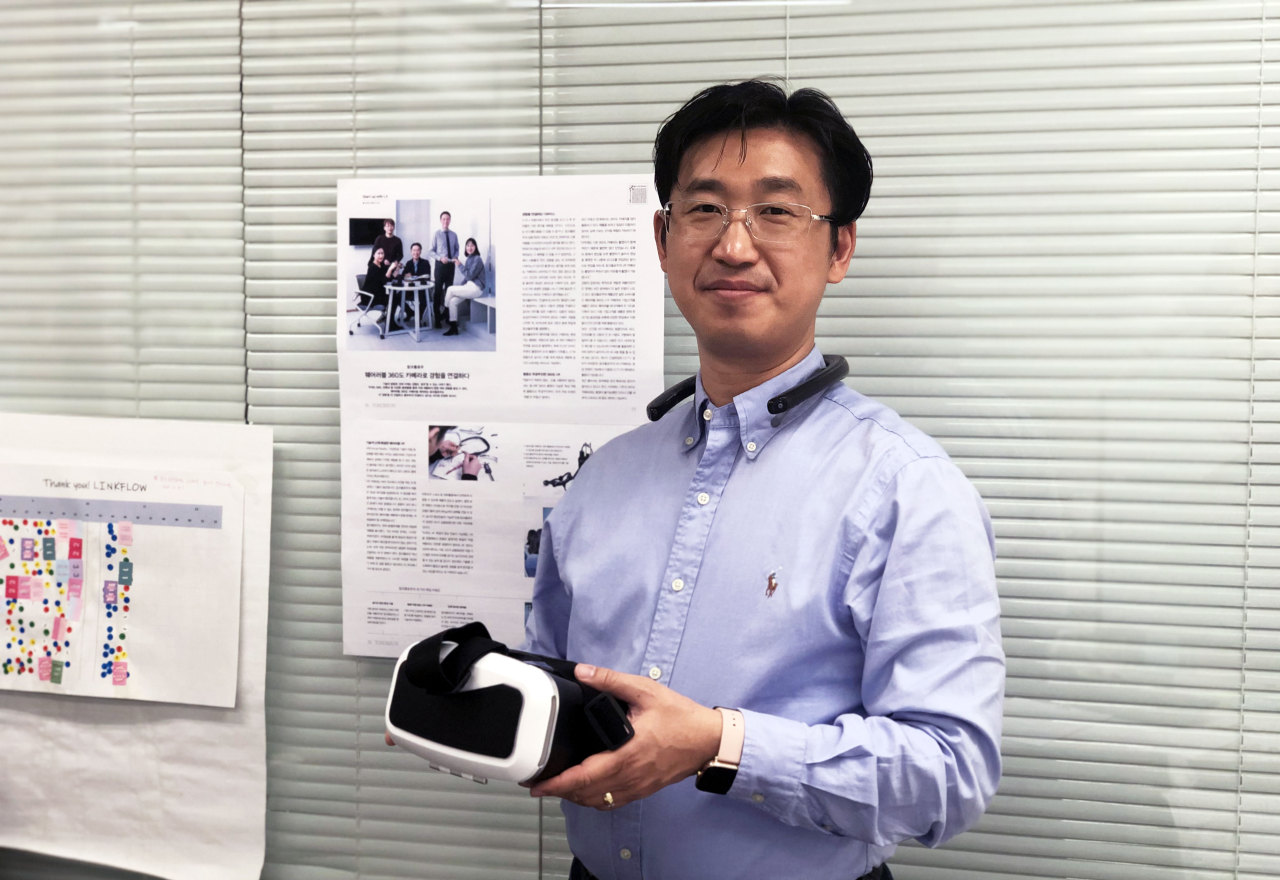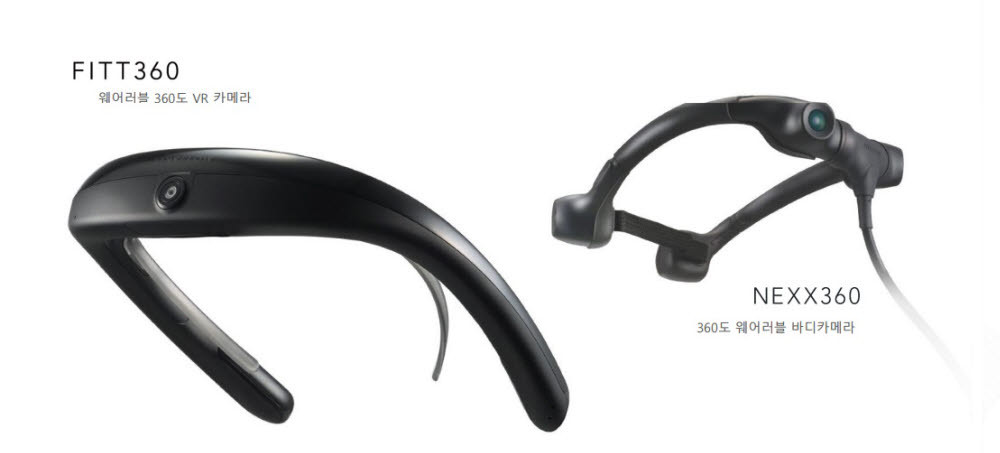[Herald Interview] Linkflow seeks to be Korea’s first hardware unicorn with 360-degree wearable cameras
They may look like Bluetooth neckband headsets, but Linkflow’s FITT360 and NEXX360 are cameras that allow users to capture 360-degree shots of their surroundings.
FITT360 and NEXX360 each have four cameras which constantly take photos and instantaneously process them into 360-degree videos.
This camera concept was born out of founder Kim Yong-kuk’s romantic desire to capture the beautiful scenery of his honeymoon in Hawaii in all its glory.

Kim, who had at that point had been working for Samsung Electronics for 16 years, submitted this idea to an in-house venture competition in 2014. His team won and was given a chance to begin its own venture. In 2016, thanks to his confidence that 360-degree contents would grab the hearts of YouTubers and outdoor adventurers, Linkflow ventured out on its own.
The blind spot-free nature of Linkflow’s hands-free devices attracted unexpected demand. Upon realizing that its potential was bigger than Kim had ever imagined, the company rapidly repurposed and repackaged the products. The cameras are now used in various fields, including security and remote shopping for VIP clients at department stores.
In Wuhan, the Chinese city in which the deadly coronavirus began, the devices are used to provide telemedicine services. Later this year, backed by increasing demand from concerned parents, the company plans to launch a 360-degree neckband designed to protect kids in South Korea and Japan from potential harassment.
The company has its sights set on the international market not only because Korea takes up only a small segment, 0.8 percent of 1 trillion won ($805 million), of the global action camera market but also because it has global competitive edges.

In addition to the technology of producing heat-free neckband and stabilizing body-shakes, Kim boasted the company’s software prowess.
“Incorporating 5G technology and processing images instantly to produce a 360-degree image is our strength that sets us apart from overseas competitors,” Kim said.
Indeed, its technology, which has won the Innovation Awards at the annual Consumer Electronics Show in Las Vegas for three consecutive years, has been acknowledged by strategic multinational investors such as Samsung, Canon, Lotte and KT Telecom, who are seeking out promising companies to invest in and also startups that are innovative enough to compete in this era of cutting-edge technologies such as artificial intelligence and virtual reality. Canon, an investor in the company, is set to help it in its foray into overseas markets, Kim said.
“My dream is to become Korea’s first hardware unicorn,” Kim said, while also acknowledging that scaling up can be a challenge for hardware makers. “In order to meet the exponentially increasing demand, we need funds, which are impossible to find as current bank loans are based on the previous year’s revenue.”
“For companies that are growing exponentially each month, the current loan system is insufficient and pushes startups like us into prematurely listing themselves publicly to meet investors’ demand for an exit,” Kim added.
Despite these challenges, the company aims to reach 100 billion won in revenue by 2022 and ultimately become a leading wearable device maker that goes beyond Korea, Kim said.
By Park Ga-young (gypark@heraldcorp.com)